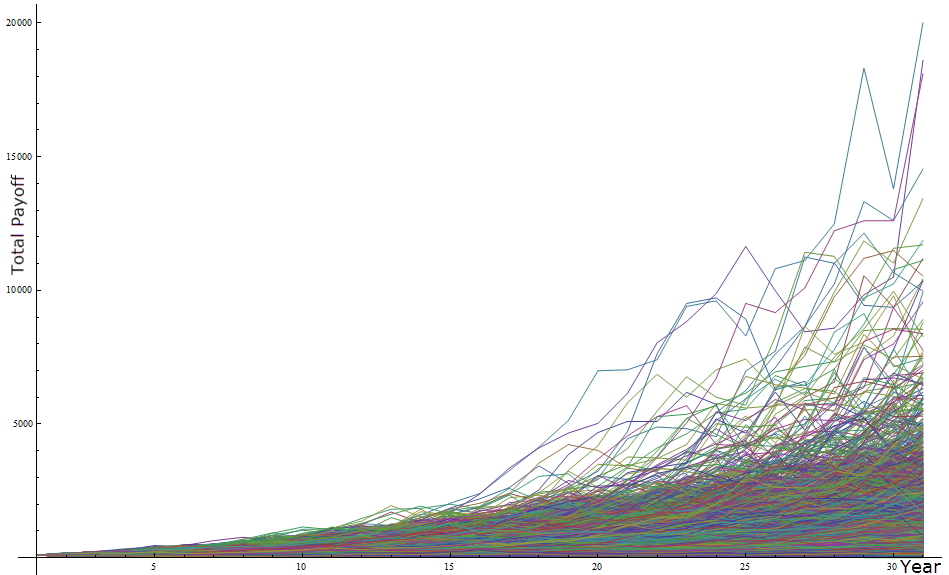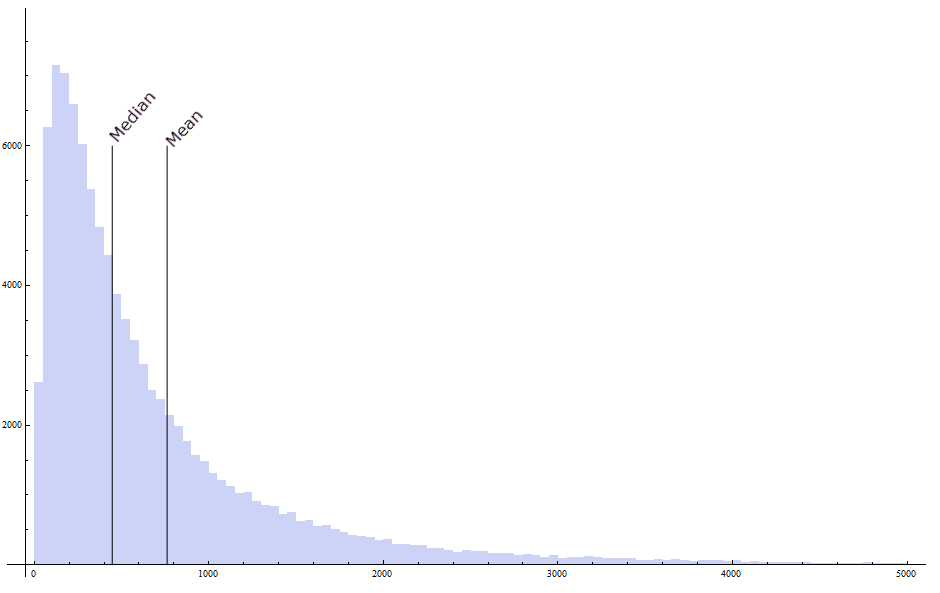Is it Accurate to say the Stock Market Returns 10% on Average
Post on: 5 Март, 2016 No Comment

Is it Accurate to say the Stock Market Returns 10% on Average?
For example, in my 401k debt pay-off calculator I plug 8% as the historical market return. I do this as a conservative measure, as I assume people may point to 10% as an unrealistic return.
But why?
Im the kind of person who likes to look at the facts. So lets talk about the historical rate of return for the stock market, as well as dissect a common counter-argument to using it in financial models.
Piggy-backing on an article in USA Today. the rate of return for the stock market is the following:
- 5 years: 1.3%
- 10 years: 2.0%
- 20 years: 7.9%
- 30 years: 10.5%
- 40 years: 9.8%
- 50 years: 9.2%

If you look at returns since 1928 you will see that on average, large-cap U.S. stocks have generated a compound average rate of growth of 9.3% since 1928 .
So perhaps the historical 10% return isnt the best rate to use, primarily because of how poorly the stock market has performed in recent years. 9.3%, or even 9%, is probably the best rate to use. If you really want to be conservative about returns, 8% seems very reasonable.
There are a few arguments that debt pay-off supporters cite in support of paying down debt instead of investing. Ill address a couple of them, but to be clear I strongly believe that if you agree that the stock market returns at least 8% on average, it is better to invest money than pay down debt that has a lower-than 8% interest rate.
In a previous post I wrote about how I do not advocate paying down more than the minimum payment on student loans, an argument was made that you have to look at investment horizon. If your debt is 3-10 years in length, you have a shorter investment horizon and therefore you cant rely on the long-term historical average.
This argument is lacking for a couple of reasons. Yes, the global economy went through a recession recently, and returns were dismal to say the least. Some may point to that and say see, it would have been better to not invest during that time! While that may be true, lets get a few facts straight:
- Very few saw the recession coming There was a very small minority of investment professionals who warned that a housing crisis and recession were imminent. In fact, some literally got laughed at when they stated this view on national television.
If you can predict the short-term rise and fall of the stock market, you probably wouldnt be reading this and instead would be getting paid millions a year to manage a hedge fund or retired.
- Hindsight is 20/20 How many people missed the recovery over the past couple years because they thought they could predict the markets returns?
This brings us full circle to the question of what rate would be superior to long-term returns? I dont think theres a good alternative, at least not one that is solid enough to justify being used in financial models.
Ultimately I dont have a problem with people advocating paying off debt instead of investing, as long as they recognize that its primarily a psychological reason versus one that makes sense from a numbers standpoint.
What rate of return do you advocate using for the stock market? Do you agree with using the historical rate?
____________________________________














